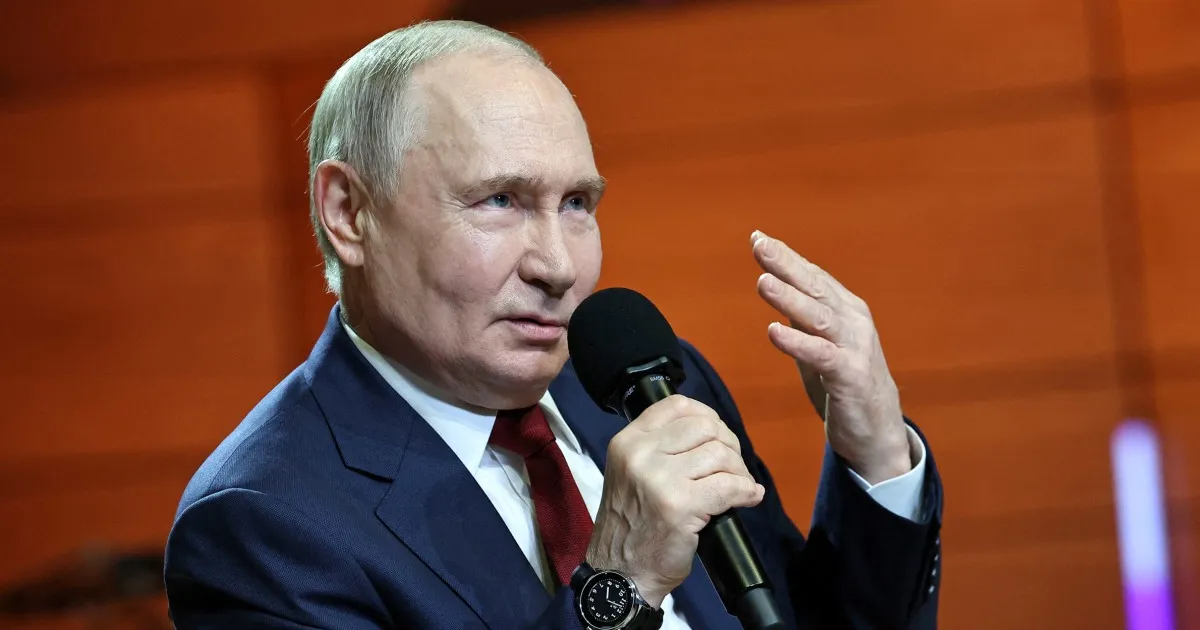
In a decisive move, the European Union and Britain have announced a new set of sanctions against Russia on Tuesday, marking a significant escalation in their response to the ongoing conflict in Ukraine. This announcement came just a day after a cordial yet unproductive phone call between President Donald Trump and Russian President Vladimir Putin aimed at discussing potential pathways to end the war in Ukraine.
The latest sanctions are designed to target Moscow's so-called "shadow fleet," which consists of approximately 200 vessels involved in the global transportation of Russian oil exports. This represents the 17th round of sanctions imposed by the EU since Russia's invasion of Ukraine in 2022. European Commission President Ursula von der Leyen emphasized the urgency of these measures in a post on X, stating it was "time to intensify the pressure on Russia to bring about the ceasefire."
These coordinated sanctions were implemented in direct response to recent Russian drone attacks on Ukrainian cities over the weekend. British Foreign Secretary David Lammy reiterated this sentiment in a statement, asserting that “delaying peace efforts will only redouble our resolve to help Ukraine defend itself and use our sanctions to restrict Putin’s war machine.”
Ukrainian President Volodymyr Zelenskyy expressed gratitude to European allies during an overnight address, emphasizing the importance of continued American involvement in the peace process. He remarked, “Russia fears American involvement,” noting that increased pressure from the U.S. could significantly contribute to saving lives by encouraging Putin to end the war.
In response, Maria Zakharova, spokesperson for the Russian Foreign Ministry, declared that the Kremlin would not yield to “ultimatums.” This announcement of sanctions coincided with the absence of any corresponding measures from the U.S., despite European leaders advocating for a unified approach from the White House should Putin reject a ceasefire.
President Trump opted not to impose additional sanctions following his lengthy phone conversation with Putin, during which he softened his previous demand for a 30-day truce. Instead, he suggested that he might withdraw from negotiations aimed at resolving the conflict that he had initially promised to end at the start of his second presidential term.
During a congressional hearing, Secretary of State Marco Rubio highlighted the White House's intention to push forward with an existing bill that could impose a staggering 500% tariff on buyers of Russian oil and gas exports if progress on a peace deal remains stagnant. Rubio noted, however, that Trump believes it is essential to maintain dialogue with the Russians, cautioning that threats of sanctions could hinder communication and negotiation efforts.
As uncertainty looms over Washington's future role in the conflict, reports indicate that Ukraine is preparing to present a white paper to the EU, advocating for more stringent measures against Russia. This could include the seizure of Russian assets and additional sanctions targeting buyers of Russian oil.
Meanwhile, the situation in Ukraine remains dire, with Ukrainian officials reporting that dozens of individuals were injured early Wednesday due to Russian drone strikes in the cities of Kharkiv, Sumy, and Kyiv. Additionally, Moscow has released footage of President Putin's visit to the western region of Kursk, marking his first public appearance since Russian forces regained control from Ukrainian troops.